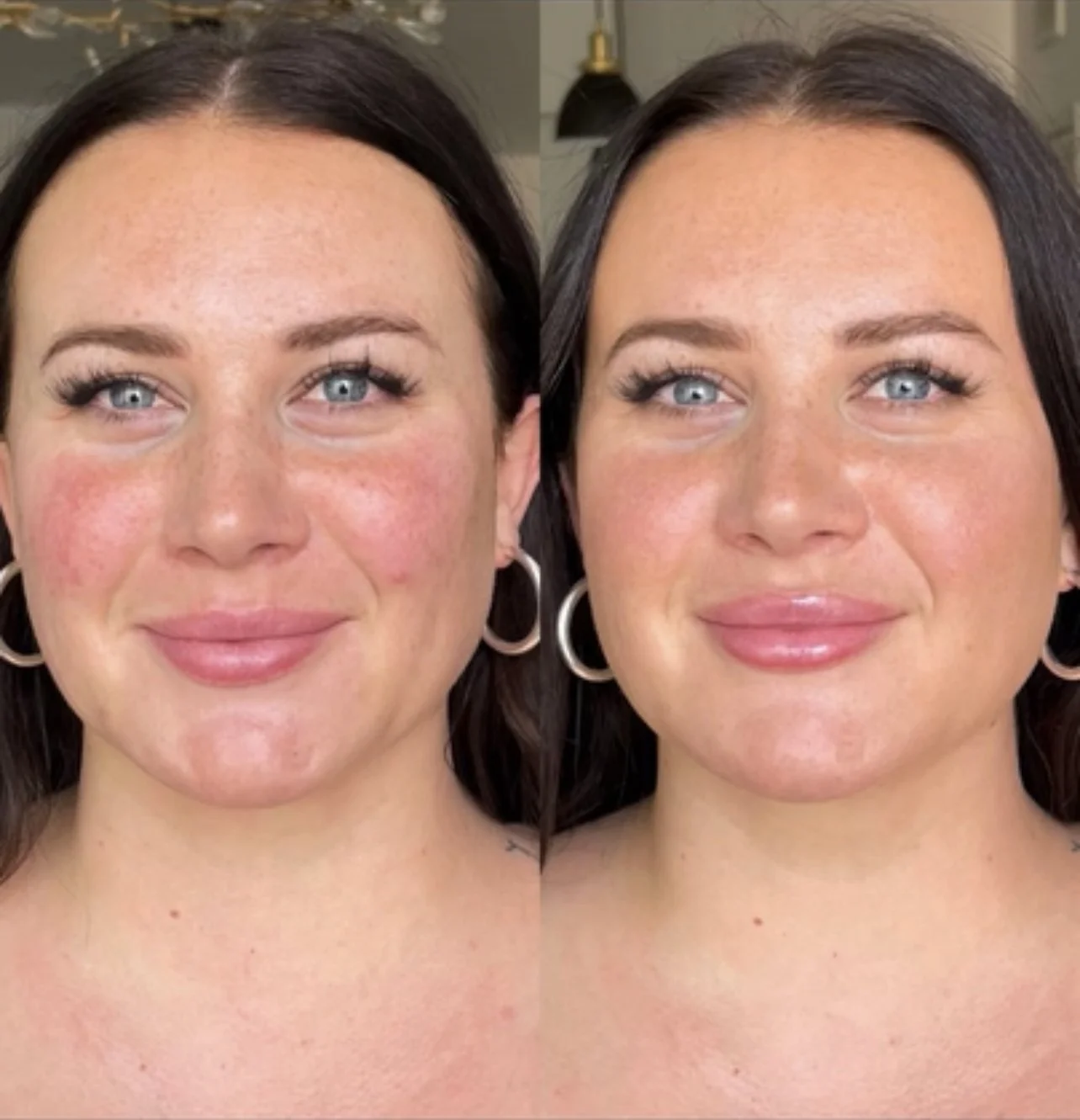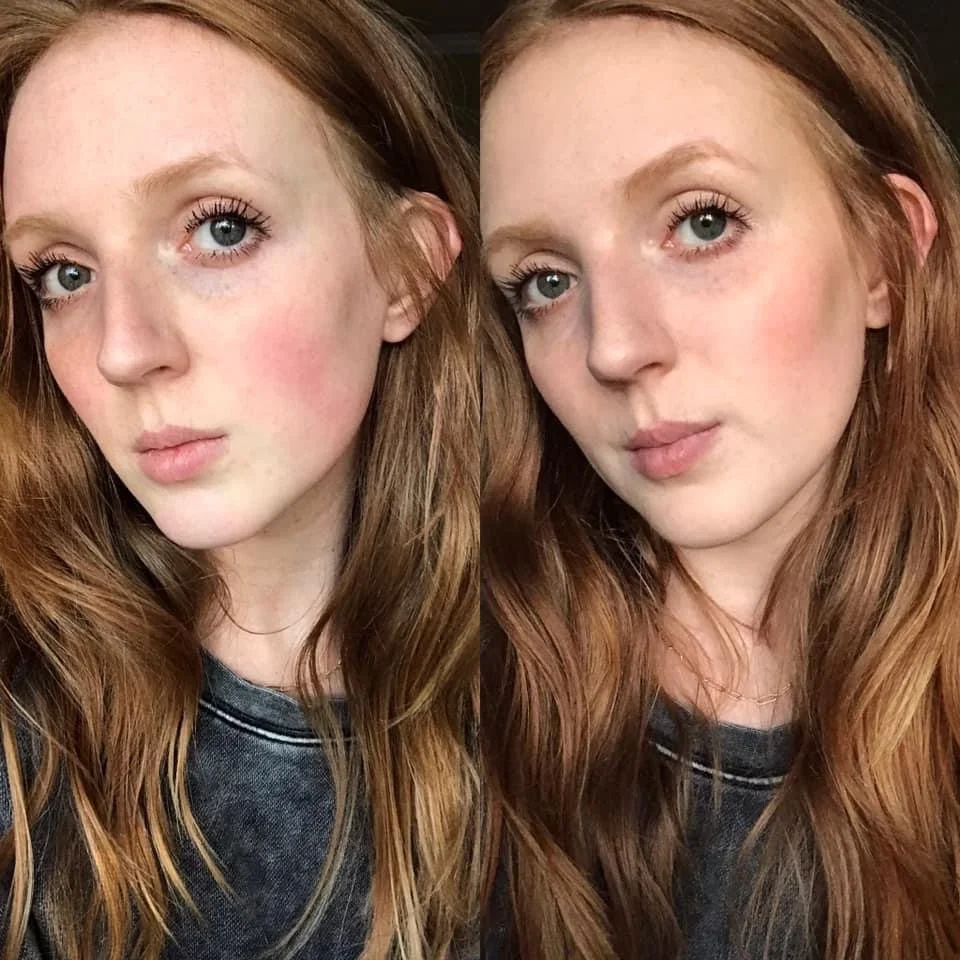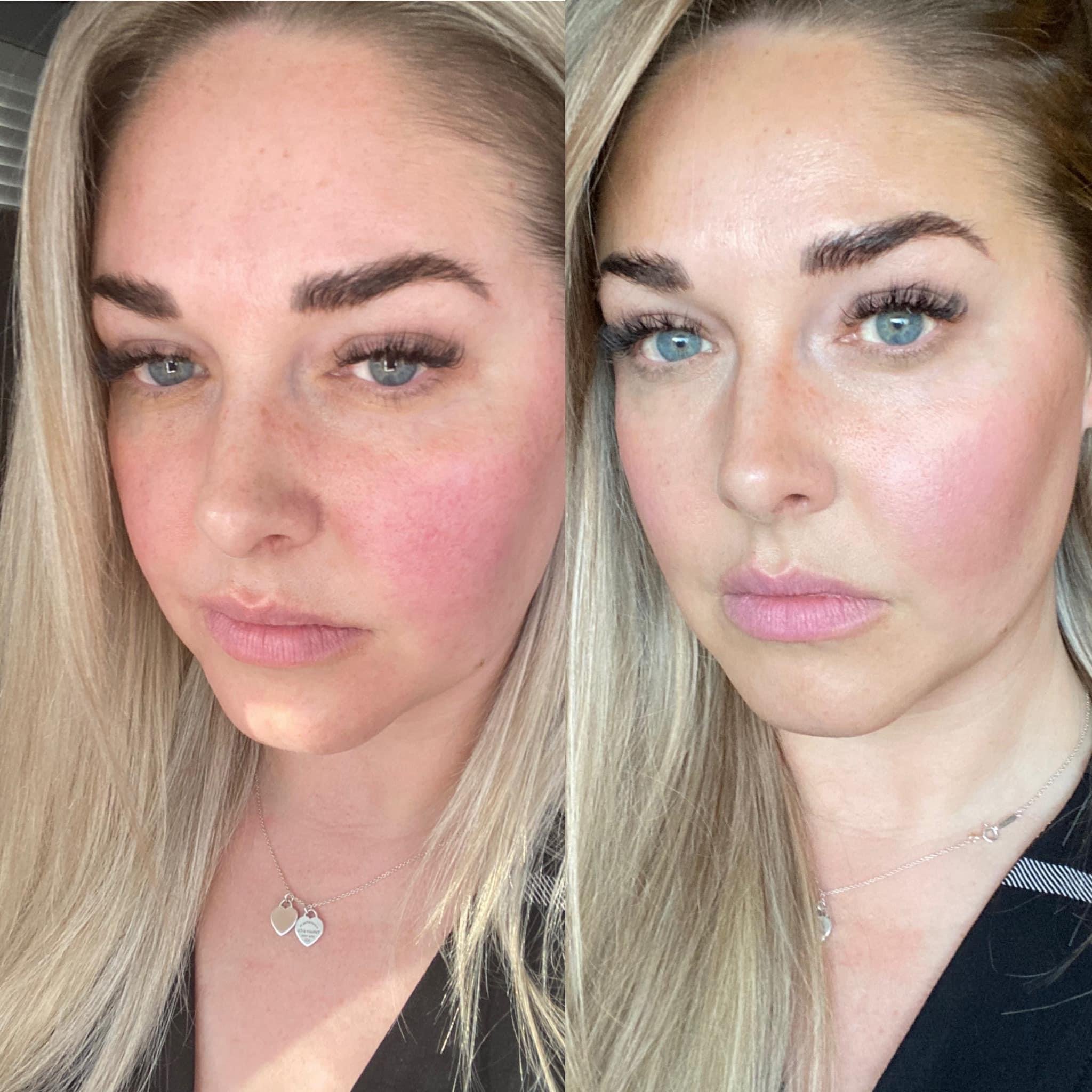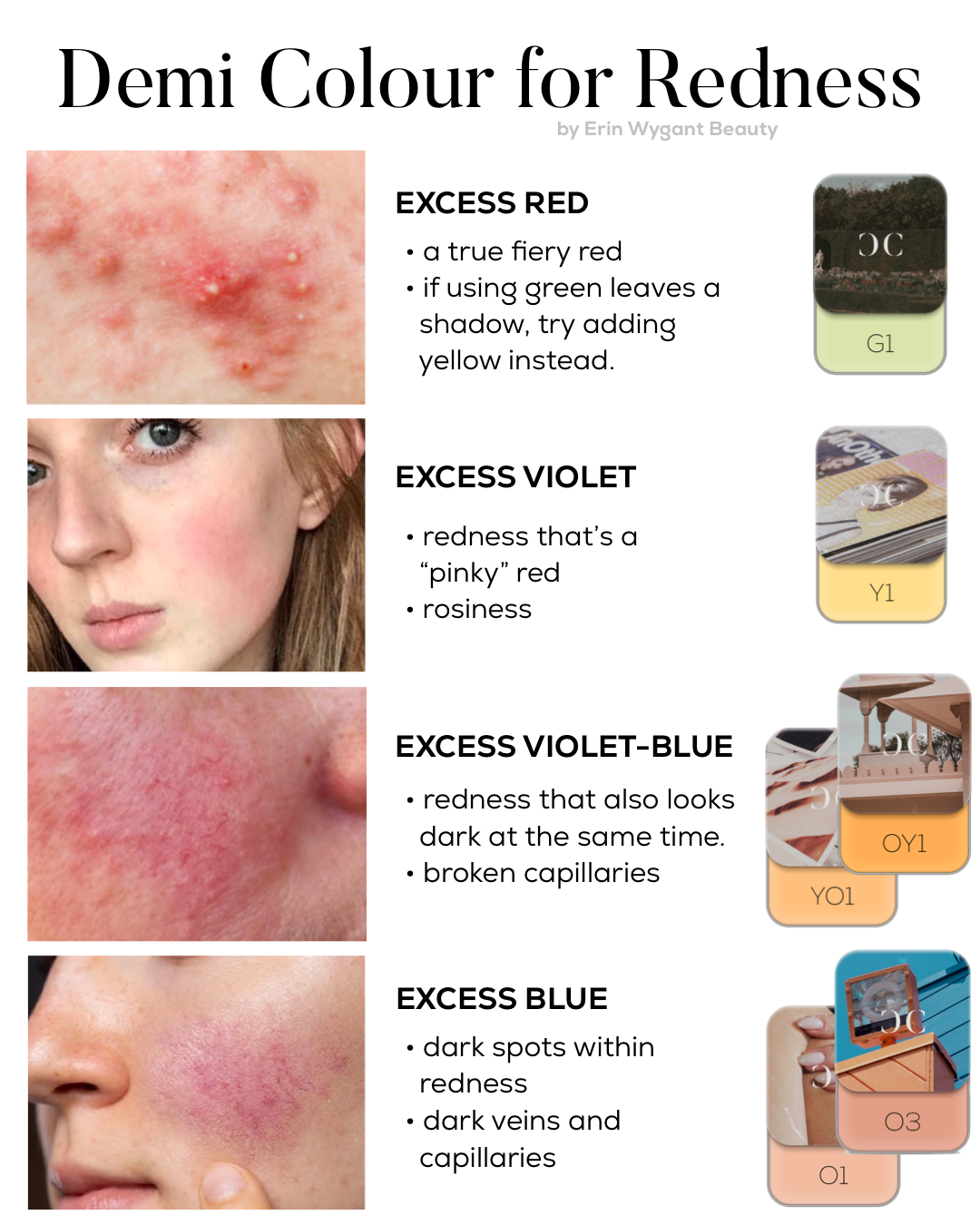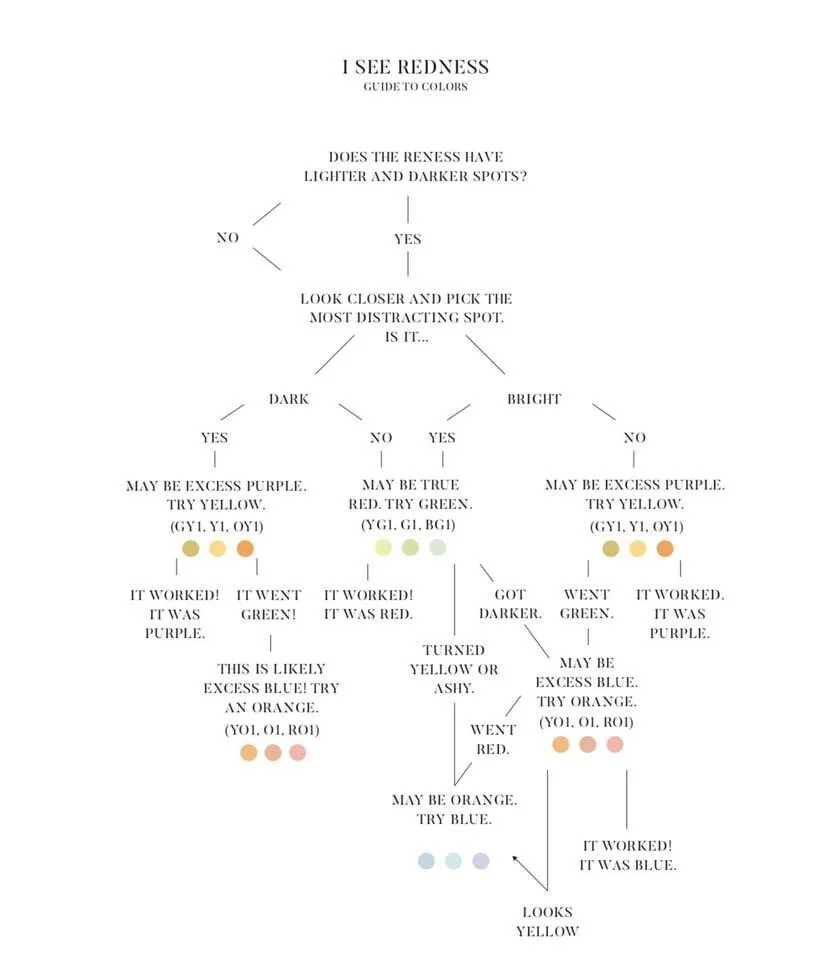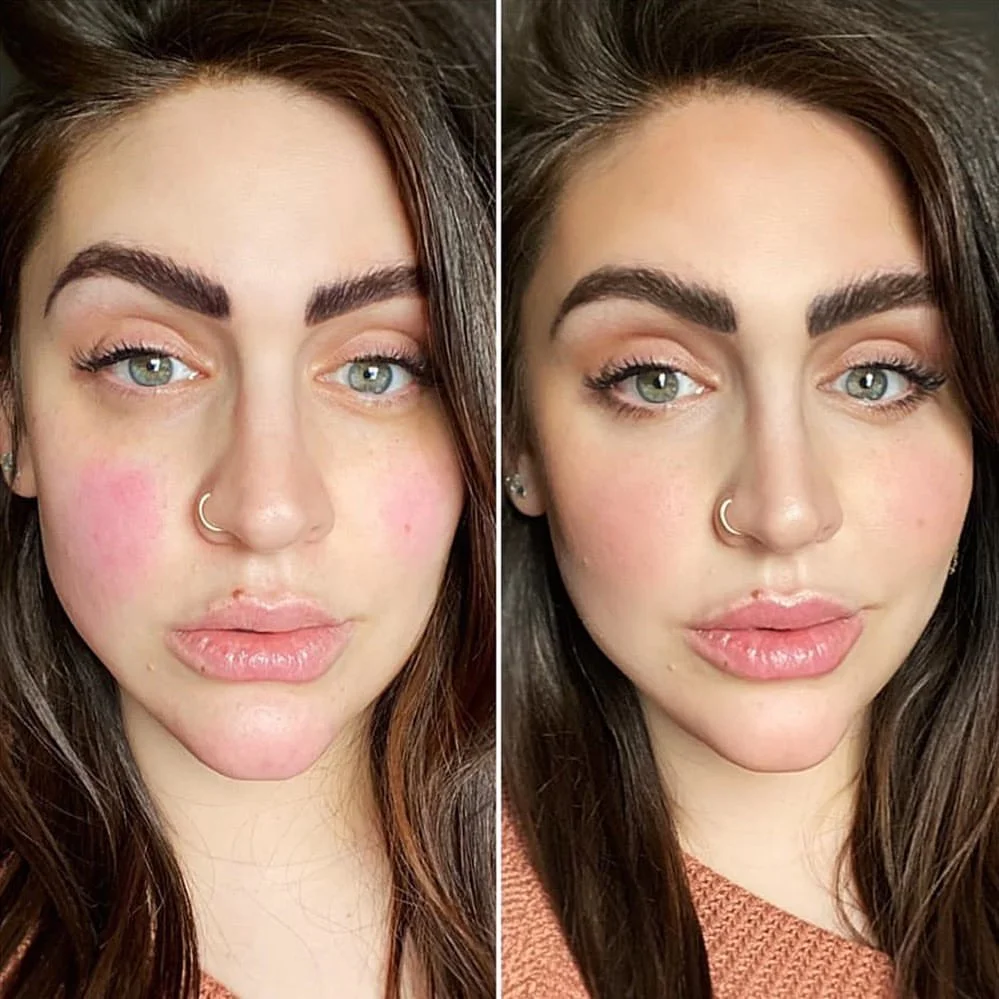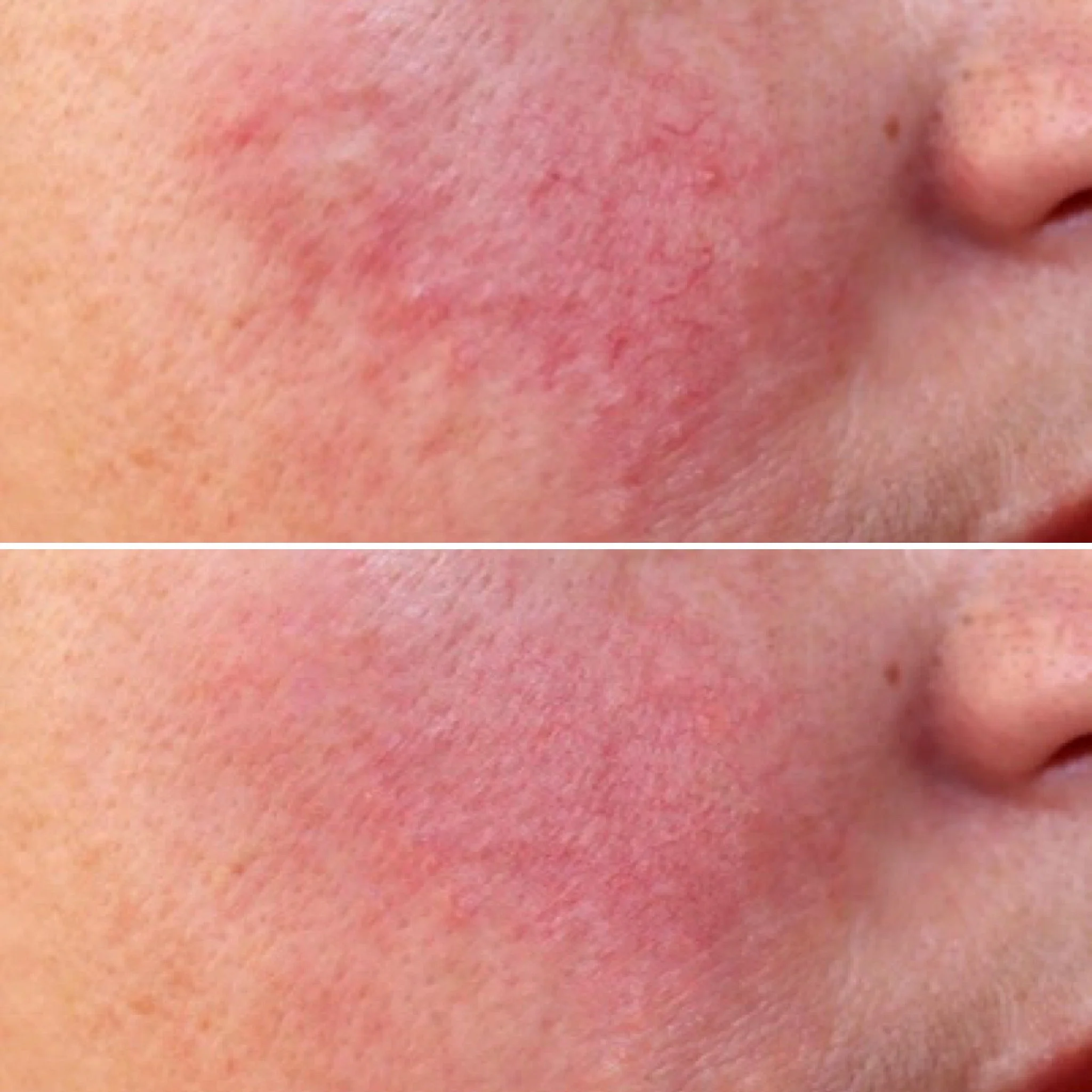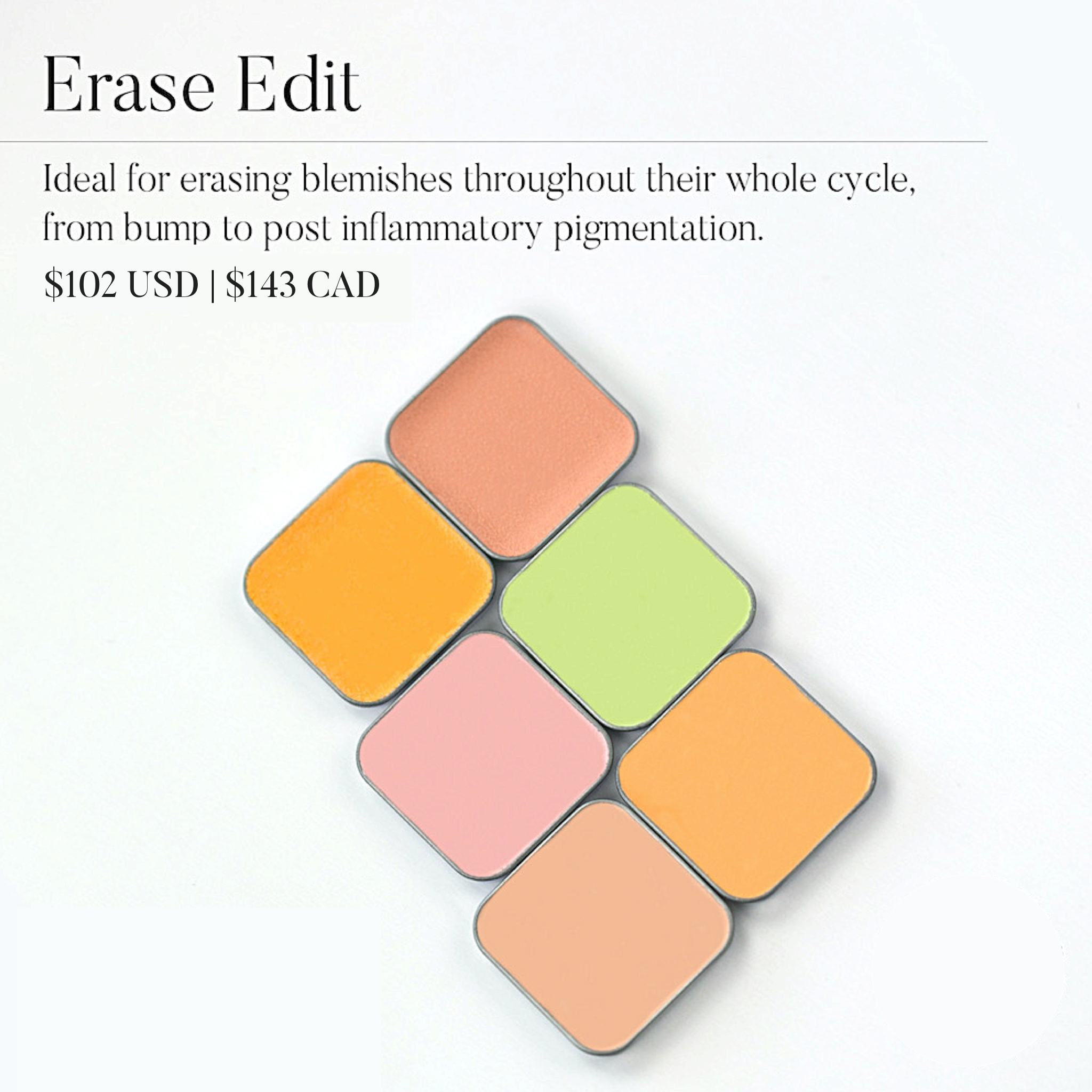Demi Colour for Rosacea
When I’m color matching someone or doing their makeup, they almost always mention their concern about “covering redness”. Whether that’s a condition like Rosacea or just general natural redness in the cheeks, it seems to be an issue that makes many of us feel self-conscious!
Rosacea is a long-term inflammatory skin condition that causes reddened skin and a rash, usually on the nose and cheeks. Not all redness is a named skin condition - sometimes it’s just natural rosiness, broken capillaries, blood supply peeking through the skin. Either way, if it’s something that bothers you, you should be able to use makeup to hide it if that’s your preference.
Applying foundation and concealer on top of Rosacea or redness in the skin can accentuate uneven skin texture and dryness! It can be frustrating when the thing we’re applying to cover the skin concern just ends up making it look worse. Demi Colour can minimize the appearance of redness and Rosacea in the skin, without adding makeup texture!
“Traditional” green color correcting makeup products don’t usually work like they’re intended. Unless your redness in question is true excess red, adding green on top will just make it look darker. Adding one color of any makeup product over a large area of discoloration will change the tone, but the variation in color and shadows will still peek through. Not to mention - these products are usually designed to be applied underneath your foundation and concealer. Which means you’re adding layers of makeup to your skin, which increases the likelihood that it will emphasize your skin texture. So really, what’s the point? You apply green to your skin to hide the redness, and then you need to apply a skin-colored makeup product on top of that to hide the green?? That’s too much work. Yeesh.
How to Use Demi Correctors to Filter Redness
Learning how to use Demi Colour will change your perspective on your skin.
Allow me to blow your mind - What most people describe as “redness” in their skin is actually usually excess violet!
When learning how to use Demi we say the phrase, “If it’s larger than a sesame seed, it’s more than one color”. Your redness in your skin is rarely just one color, especially if it covers a larger area. Most likely, the part that’s the most “distracting” is the darkest points within the overall redness. Oftentimes a single dark spot will make a larger area appear dark, so eliminating that one spot can have a transformative effect. So that’s where you should start.
Find the darkest point within your area of redness. Since it’s dark, it most likely has some excess blue in it. Either it’s a true blue, or a violet-blue. Start with the complimentary Demi shade of orange (O3, O1) first. If it looks ashy, try adding yellow (OY1 or YO1).
Precisely trace along broken capillaries with YO1 to erase them.
Use vibrant OY1 on any areas that look like dark shadows under the skin.
If there are any freckles, age/sun spots, or areas of hyperpigmentation use pink (RO1, R1)
Once you’ve removed the darkest points, you can reassess. If there is still a large area of remaining excess red or violet that you’d like to filter, you can use green (G1) or yellow (Y1) Demi to “tone” the larger area. (But be careful, adding any Demi shades to a larger area should be done carefully so it doesn’t create a new color issue to solve.
General Demi Colour tip: Always use the smallest brush possible for precision, and apply the smallest amount of product possible. The color should disappear into the skin. You’re not trying to “cover” anything, you’re trying to filter the color you can see.
Making Your Redness Work for You
Traditional makeup methods have taught us that we need to even out our skin tone so it’s all one color, then add blush on top. Does this make absolutely no sense to anyone else???
Not all redness is undesirable or unattractive. If you have natural redness in your cheeks, don’t fight against it! Make it work FOR you!
You can use Demi Correctors to remove the most distracting points, and tone around the edges to keep some of the redness contained to the area you would normally apply your blush. Boom - natural blush!
Another great trick is to choose a blush shade that most closely matches your natural redness to fill in the apples of your cheeks around your natural blush to bring balance to the cheeks.
Finding Balance
With Demi Colour, the main objective is balance. You’re not trying to remove every color in your skin! You don’t want to create a flat, one-color complexion. Not only would that be time consuming, it ruins the magic of Demi! The natural variations in your skin are beautiful. Demi Colour preserves the natural look and beauty of your skin like no other makeup.
By focusing on filtering away only the most distracting points in your complexion, you’ll be able to see the beauty of your entire face.
In this photo, only the darkest and most distracting points have been removed. The redness still exists, but is less prominent.
You can do as much or as little filtering as you like. But instead of trying to “cover” or “hide” as much as possible, I recommend trying to learn to appreciate the natural rosiness in your complexion!
The beauty of Demi Colour is in the subtlety. It might take some time to learn and feel comfortable applying Demi, but once you do it’s life changing.
The Erase Edit
The Erase Edit is ideal for erasing blemishes and excess “redness” in the skin. By targeting each spot starting at the darkest point, you’ll keep your natural skin’s luminosity while eliminating those unwanted distractions.
Includes Demi Correctors in shades RO1, O1, O3, OY1, YO1, and G1. Brush and palette not included.
If you need help choosing Demi Colours for your skin tone and skin concerns, click here to get a free color consultation by me! I will email you some personalized recommendations.

